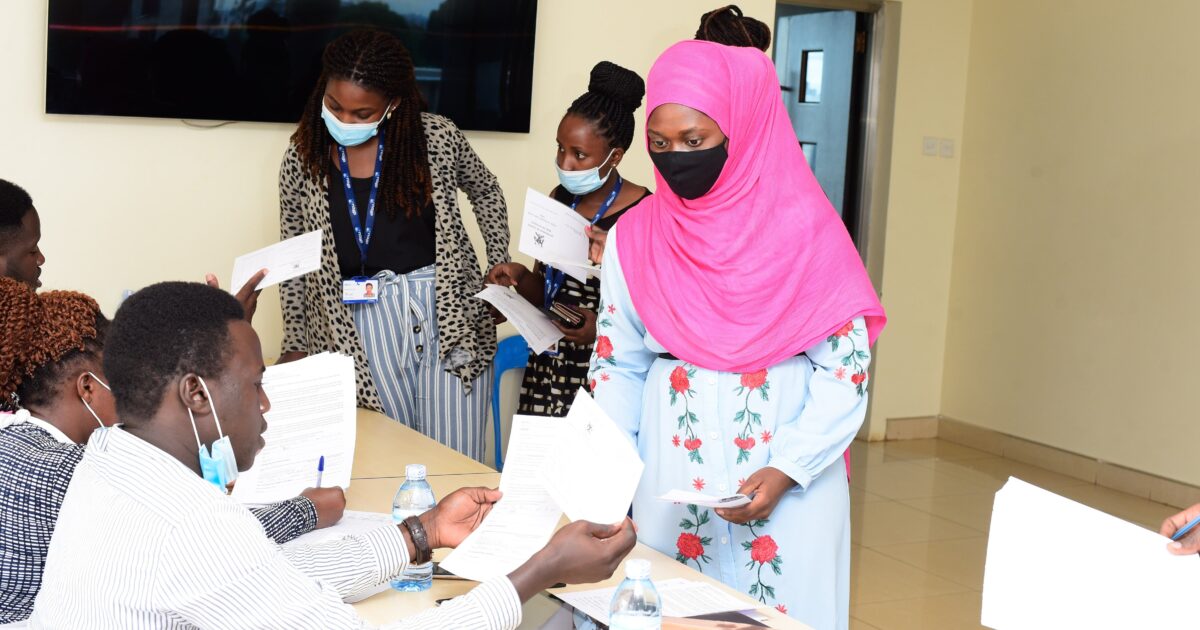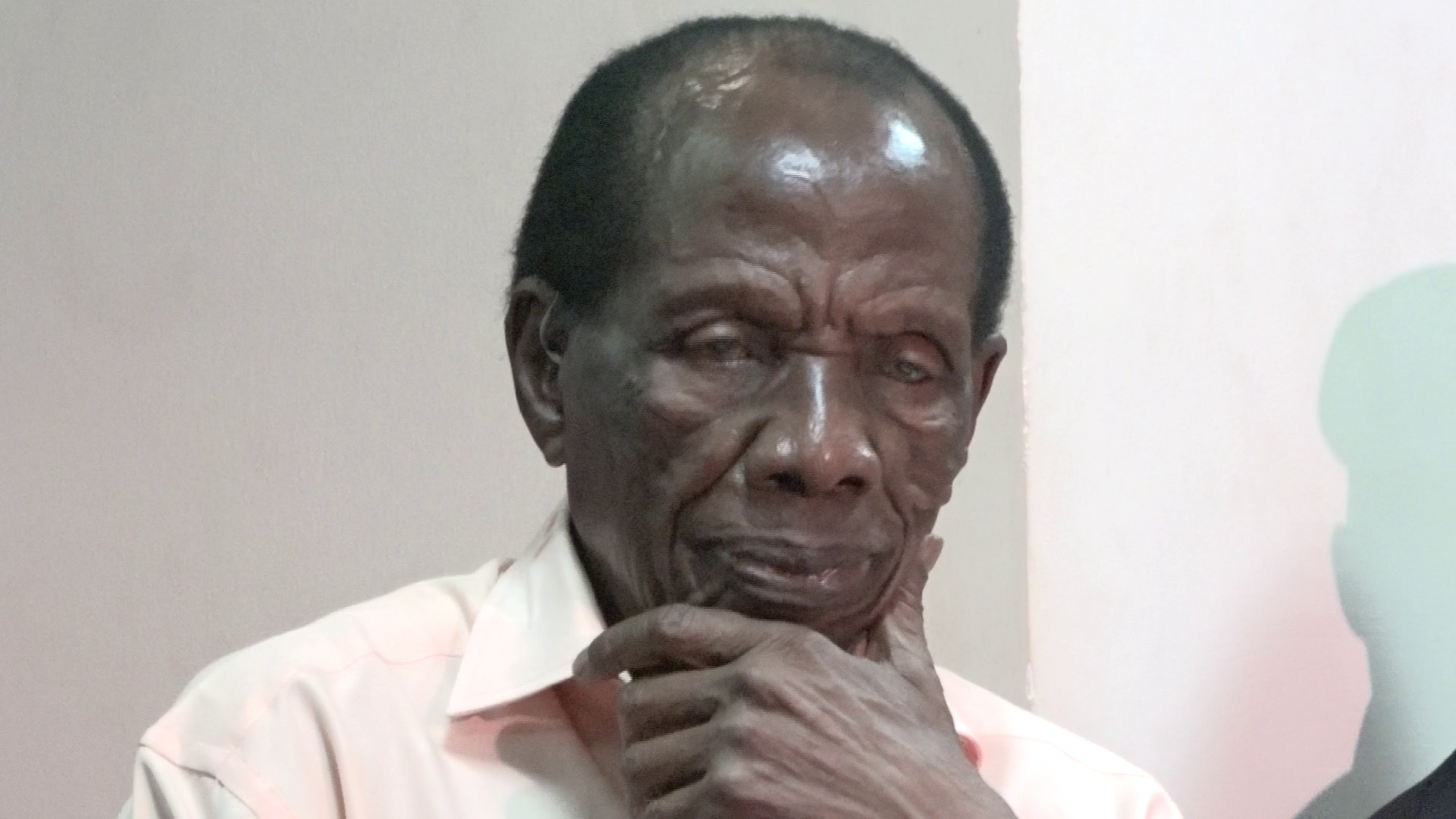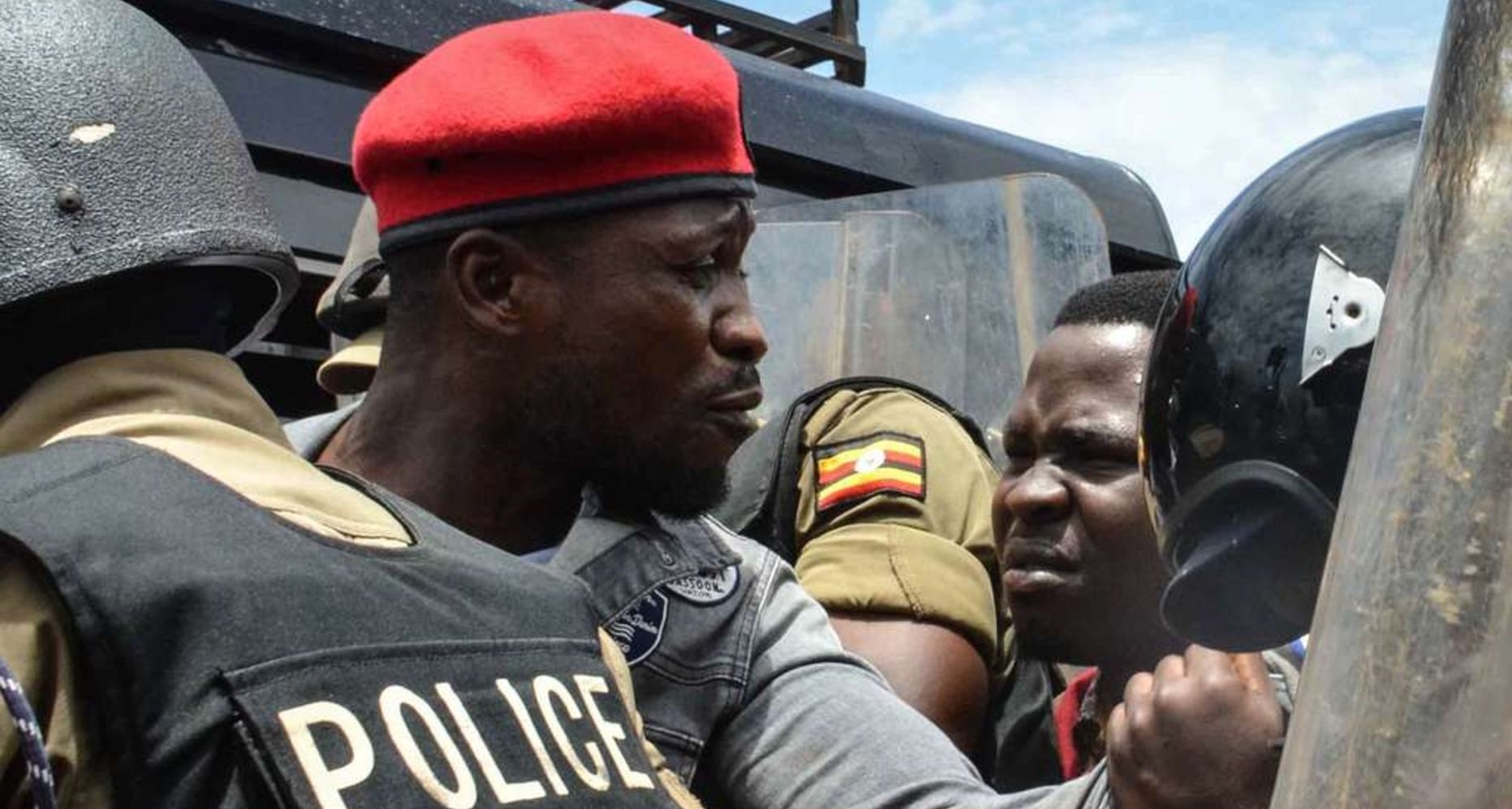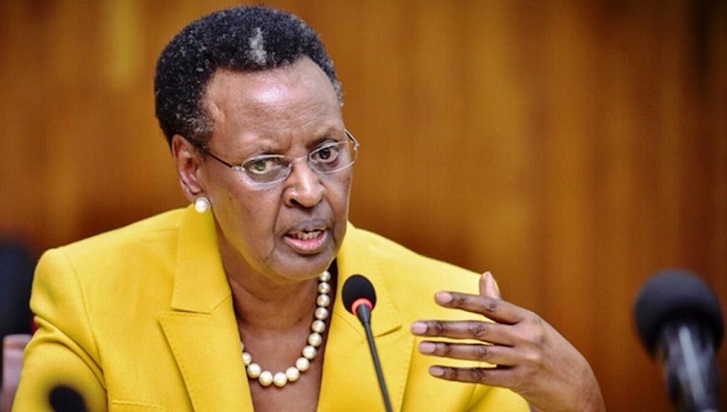dfcu employees being vaccinated
With COVID-19 Vaccination opening up for everyone above the age 18 years, many companies are taking the initiative to vaccinate their employees and family members. In a recent drive to ensure that as many of it’s employees respond to the national call for vaccination, dfcu Bank, in partnership with Ministry of Health and KCCA organised a two-day COVID-19 vaccination camp, for its staff in Kampala, under the company’s COVID-19 care initiative.
The exercise held at its head office saw a total of 311 people get vaccinated. The bank has continued to rally its employees stationed upcountry to get vaccinated at the government gazetted centres. As part of its efforts to manage the COVID 19 situation, the company set-up a 24/7 helpline and group level task force for COVID-19 related support in 2020.
According to dfcu bank’s Head of Human capital, Harriet Musoke, this initiative is part of the company’s strategy to protect its people and customers given the recent spike in COVID-19 cases reported by Ministry of Health.
“We want to ensure that ‘our people’ that is our employees, their families, our partners and by extension our customers are safer. By encouraging our staff to get vaccinated, we believe we are contributing to a safer work environment for all of us, our families, our customers and larger community. We are also cognizant of the fact that they have busy schedules and may not be able to access these services easily, so we decided to bring the services closer to them,” she said.
“In light of the second wave of COVID-19 that government has warned about, it may be prudent that people take this seriously considering the importance of a healthy workforce. Ofcourse there are concerned about the vaccine – many of them influenced by a lot of information on social media. So I appeal to the public to be conscious of the kind of information we share on our personal platforms. It’s important to verify its credibility before sharing lest we contribute to spreading misinformation, ” added Harriet Musoke.
Munir Safieldin, Country Representative, United Nations Children’s Fund (UNICEF) while speaking at the launch of two five-year parallel projects for Karamoja sub-region at Hotel African in Moroto town on Friday implored Ugandans to embrace the vaccine otherwise it will be taken to other countries. Safieldin noted that the vaccines were safe, asked the public to disregard message on social media as fake. He said the immediate concern was to ensure that all doses imported into the country serve the purpose.
“Ugandans should ensure the doses are completed before approval to receive second batch of the COVID-19 AstraZeneca vaccine. The vaccines are aimed at preventing death or avoiding disease from attacking us,” Safieldin said.
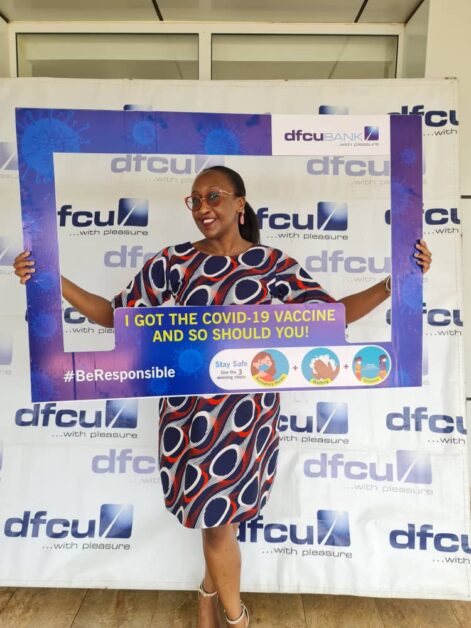
Research conducted by Public Health England posits that, a double dose of the COVID-19 vaccine is almost as effective against the fast spreading variant of the coronavirus first identified in India as it is against the UK strain. The study further confirms that two doses of AstraZeneca vaccine were 60% effective against symptomatic disease from the Indian variant.
According to the Ministry of Health, so far 497, 821 high-risk populations have been vaccinated using the AstraZeneca vaccine. The Ministry of Health received 864,000 doses of the AstraZeneca COVID-19 vaccine, shipped via the COVAX facility – the world’s facility for universal access to COVID-19 vaccines. The COVAX facility allocated 3,552,000 doses of the AstraZeneca vaccine to Uganda for the period of January – June 2021. The remaining 2,688,000 doses are expected by June 2021.
The first phase of the FREE vaccination targeted health workers in public and private health facilities who by the nature of their work are at higher risk of contracting the disease compared to other categories of people. Other target groups in order of priority are security personnel; teachers; humanitarian front-line workers, bankers, people above 50 years with underlying conditions such as diabetes, hypertension, heart, kidney, or liver disease; people aged 18-50 with the same underlying conditions; and other emerging high risk and priority essential groups as more vaccine doses arrive in the country.
The main objective of the National Deployment Vaccination Plan (NDVP) is to vaccinate up to 49.6% per cent of the population in a phased manner. Each phase is intended to cover 20% of the population. The eligible population comprises of individuals 18 years and above.


